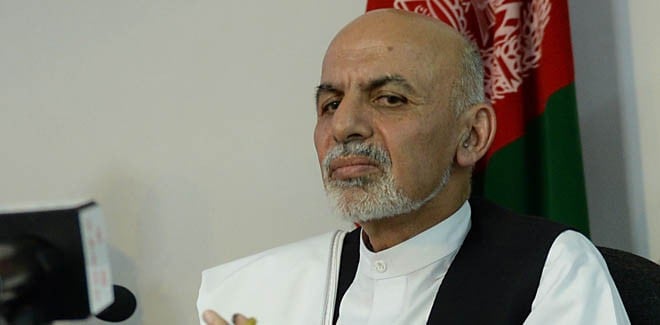

June 14 was a historic day in the recent Afghan history as the electorate in the country had to choose a president to rule for the next five years amid political turmoil and insecurity. Everything went smooth on the day of election with a few attacks by Afghan Taliban which could not halt the election process.
According to Afghan Independent Election Commission, around seven million voters exercised their right to franchise. As the process of vote count began, Abdullah Abdullah, one of the two contestants, charged President Hamid Karzai’s administration with massively rigging elections, giving his opponent Dr Ashraf Ghani Ahmedzai an unassailable lead of around 1.5 million votes. Abdullah has asked the United Nations to intervene and stop the vote-count and announcement of final winner. Intriguingly, President Hamid Karzai has agreed to Abdullah’s appeal to the UN and welcomed it. However, the UN has refused to play any role and has asked Abdullah to abide by Afghan laws and election regulations and termed his appeal to the body regrettable.
On his part, according to Afghan analysts, President Karzai has agreed to the UN role as desired by Abdullah, to delay the announcement of winner so as to lengthen his rule. This situation does not augur well for Afghanistan and its future. The first-ever peaceful and democratic transfer of political power in Afghanistan is of extreme importance as it would determine the fate of Afghan constitution, democracy, development, reconstruction and institution-building processes.
Abdullah, an ethnic Tajik, may have emerged as the leading candidate in the first round in April this year, followed by Ashraf Ghani, but he was still well short of a clear majority of at least 50 per cent of the polled votes. Abdullah’s lead in the first round could be attributed to the over-enthusiastic participation of Tajik voters and listlessness of majority Pashtun voters because of absence of a strong Pashtun candidate.
Since the end of the first round, there have been strong indications and expectations that Ashraf Ghani Ahmedzai would defeat Abdullah. The foremost reason in this respect has been said to be the Pashtun ethnic background of Ashraf Ghani. Ghani may not have been a popular Afghan politician but his sound academic background, having a PhD in Economics, and his professional career with bodies like the World Bank, was enough to further motivate the Pashtuns to vote for him in large numbers. Still the most important factor in his ultimate win would be his Pashtun ethnicity.
This can be gauged from the survey by a US-based research firm Glevum Associates regarding the second round of Afghan presidential election. According to the findings of the survey released just three days before the second round on June 14, Ashraf Ghani was leading with (49 per cent) over Abdullah Abdullah with (42 per cent) for the second round of voting. The telephone survey included 2806 Afghans, contacted by telephone, from June 3 to 9.
Since the foundation of modern Afghanistan, by Ahmed Shah Abdali in 1747, Tajiks have ruled the country for only two brief periods. The one was the transient occupation of Kabul by Habibullah Kalkani, also known as Bach-e-Saqaow, and the second by Professor Rabbani. Kalkani was King of Afghanistan from January to October 1929 after deposing Am?null?h Kh?n with the help of various Afghan tribes who opposed modernisation of Afghanistan. Other than the two stints, Afghanistan has always been ruled by Pashtuns.
This is sufficient evidence to argue that for a candidate with Tajik background it is next to impossible to win election in Afghanistan. Afghanistan is still a very conservative, tribal and underdeveloped society, wherein clan, tribal and ethnic affiliations matter the most rather they override any other affiliations or sentiments. It would take decades of continued democratic and electoral processes to establish a true democratic culture and pluralistic society in Afghanistan where ethnic or clan loyalties would be of lesser importance. Who else would know these social and political realties better than Abdullah, who has been a key political and public figure in Afghanistan for the last three decades.
Finally, Ghani may win by a significant number of votes due to the all-out Pashtun votes for him. A large number of members of the Ahmedzai tribe are engaged in huge businesses and trades across Afghanistan, Pakistan and the Middle East and some analysts believe that they have massively funded the electoral campaign of Ghani.
There is a strong possibility that Afghan Taliban may also have deliberately facilitated people in the Pashtun-dominated areas of Afghanistan under their control, to vote for Ghani. So in this situation, Dr Ghani would most likely emerge as the winner in the second round whenever the results are announced.
It is important to note that unlike Abdullah who, apart from his political background, had been a militant commander associated with former Tajik warlord, Ahmed Shah Masoud, Ghani has had a totally non-militant background. Given the irreparable damage which all warlords or militant leaders inflicted on Afghanistan, the kind of leadership and vision which Dr Ghani could give to Afghanistan cannot be expected of Abdullah. Afghanistan can ultimately experience some stability if Ghani becomes president.
As Afghanistan’s relations with Pakistan are critically important for the entire region, there are more prospects of stable ties between the two countries under the rule of Ghani. Tajik and Uzbek minorities in Afghanistan have been complaining for decades about Pakistan’s backing of Afghan Pashtuns.